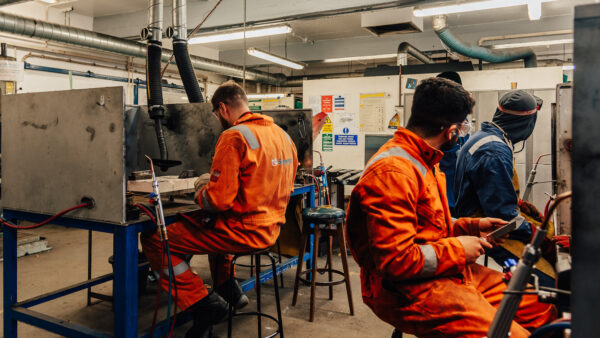
A digital platform for demolition and modelling for modular housing are Dr Kenneth Park’s twin areas of research. Nicky Roger reports.
What are you researching at present?
I have been awarded the Brain Pool programme fellowship by the Ministry of Science and ICT in South Korea and the National Research Foundation of Korea. It is for the enhancement of research on ‘House information modelling for a typical type of housing modular units’.
I am also working with CNC Group Holdings (Colemans Group) to revolutionise the demolition and deconstruction sector by developing a digital demolition platform to advance efficiencies, safety and environmental performance for the Innovate UK KTP (Knowledge Transfer Partnerships) project.
Why is it important to the construction industry now?
The highly fragmented nature of current construction practices necessitates the development of reliable BIM-enabled house information modelling for a typical type of housing modular units.
It supports and guides the introduction of effective housing modular construction and management and ensures the integration of required information throughout the project life cycle.
The KTP project envisages the development of a transformative ‘digital demolition’ platform incorporating 3D scanning, artificial intelligence and remote-control equipment, enabling demolition to be preprogrammed, predictable, data-driven and simulated in a virtual environment – eliminating workers’ exposure to dangerous environments.
Dr Kenneth Park CV
2023 to present Brain Pool programme fellow, National Research Foundation of Korea
Aston University
Aug 2020 to present Reader in Construction Management & Engineering
2019-20 Head of Engineering, Systems & Management
2017-20 Senior lecturer in Construction
2018-19 Deputy head of Engineering, Systems & Management
2009-15 Lecturer in Construction
2012-22 Adjunct professor, Hanyang University, South Korea
2015-17 Senior lecturer in Construction Management, Massey University, New Zealand
What is new about this research?
New technologies, including building information modelling (BIM), 3D scanning survey, 3D modelling, artificial intelligence, digital demolition and modular construction were not available for past construction projects, but they are essential in order to alleviate current problems in the construction sector including the housing sector in both UK and South Korea.
There is growing advocacy for their adoption due to their ability to facilitate faster, more cost-effective and safer construction of buildings. Additionally, they contribute to reduced environmental impact, enhanced predictability, whole-life performance and increased profitability.
How will construction companies apply your research?
CNC Group Holdings is a leading demolition specialist, operating in an industry challenged by safety hazards, inefficiencies and an ageing workforce.
The KTP project will utilise simulation, modelling, Al and remote-controlled machinery to minimise human exposure to demolition hazards, thus reducing hazards to workers’ safety. It will also optimise techniques to tackle rising costs and waste to maximise resource utilisation and financial efficiency.
The KTP will deliver the required capabilities to empower Colemans with Al for material assessments and remote equipment control, digitalisation for revolutionised planning and data management, and circular economy practices for sustainable material reuse.
What areas of research do you think are most crucial for academics to focus on now
to meet industry challenges?
The UK Construction Playbook brings together expertise and best practices to reform the industry and transform how public works projects and programmes are assessed, procured and managed. However, there is no one straightforward solution to all policies and issues.
From these policies and my 29 years of experience in both industry and academia, MMC, digital transformation and early engagement are most crucial.
How wide is the gap between academic research and industrial application? How can we meet these challenges?
The gap between academic research and industrial application in construction can be substantial due to different objectives, resource constraints, funding limitations, risk management approaches, communication barriers and collaboration.
Like the KTP project, industrial practitioners and academic researchers should together seek a way to do research collaboration via an innovative funding programme which helps companies gain access to academic knowledge, expertise, and technology.
Academics should be encouraged to focus on practical and scalable solutions that address industry needs. Continuous education and training programmes should be provided for industrial practitioners to help them stay updated with the latest academic advancements and apply them.
Then we can bridge the gap between academic research and industrial application, fostering a more innovative and efficient construction industry.
If you’re interested in academic membership visit www.ciob.org/membership/become-a-member/educator.









